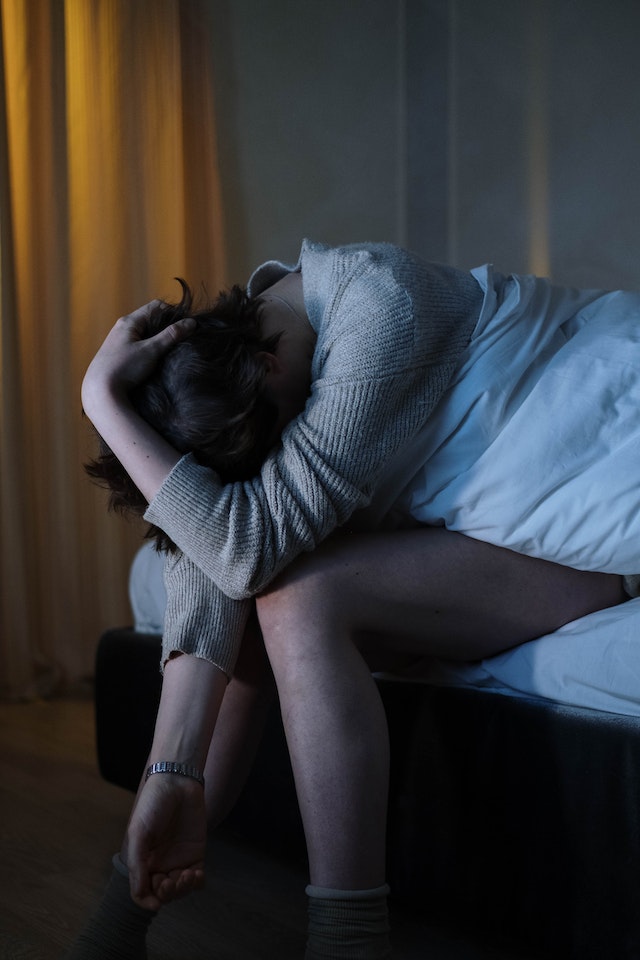Sleep Apnea and Anxiety: Causes, Symptoms, and Treatment
Sleep apnea occurs when the upper airway over-relaxes, closing the throat and obstructing the flow of air, so it’s not hard to see why the condition has been linked to anxiety and distress in sleep apnea patients.
Approximately 22 million individuals in the U.S. are affected by sleep apnea, with untreated cases potentially leading to serious medical consequences, including sudden death. Heart disease exacerbated by sleep apnea is linked to an estimated 38,000 fatalities each year.
This piece examines the relationship between sleep apnea and anxiety, highlighting the symptoms and treatment of each condition.
What is Anxiety?
Anxiety is essentially your body’s reaction to stress. It often manifests as intrusive thoughts, negative thinking patterns, and physical tension and can even elevate your blood pressure and heart rate. Insomnia and restless nights are common if you’re battling with ruminating thoughts and anxiety. As such, patients with chronic insomnia face a heightened risk of developing sleep-related disorders such as sleep apnea.
What is Sleep Apnea?
Sleep apnea results in breathing lapses, known as “apneas.” These typically last 10 seconds or longer.
The typical signs and symptoms associated with sleep apnea include:
- Loud, consistent snoring
- Episodes of gasping or choking during sleep
- Excessive sleepiness during the day
- Problems with concentration
- Morning headaches and dry mouth
- Sexual dysfunction
Ignoring sleep apnea can result in issues such as:
- Heart disease
- Heart failure
- Stroke
- Diabetes
- High blood pressure
- Asthma
- Atrial fibrillation (irregular heartbeat)
The Connection Between Sleep Apnea and Anxiety
Sleep Apnea can trigger anxiety, yet whether anxiety causes sleep apnea remains unclear. The consensus among researchers is that stress can harm the quality of sleep.
A 2019 study revealed a higher incidence of anxiety disorders and depression in individuals with sleep apnea than in those without it, particularly in female patients. Nevertheless, it’s important to remember that while anxiety and sleep apnea often coexist, one does not necessarily cause the other.
Treatment Options
Sleep Apnea
The only definitive way to diagnose sleep apnea is through a sleep study. A sleep study to measure your brain waves, oxygen levels, heart rate and rhythms overnight.
A sleep specialist can use this data to determine the severity of your sleep apnea by analyzing your Apnea-Hypopnea Index (AHI). The first line of treatment for sleep apnea is Positive Airway Pressure (PAP) therapy. A Continuous Positive Airway Pressure (CPAP) device delivers pressurized air to keep your airways open while you sleep, preventing apneas.
If you’re dealing with both sleep apnea and anxiety, seeking treatment for both conditions is crucial.
Anxiety treatments can include:
- Prescribed medications
- Mental health therapy
- Mindfulness techniques, such as meditation
Practicing good sleep habits can also be beneficial in addressing sleep problems, including sleep anxiety. To improve the quality of your sleep, it’s important to establish healthy habits such as:
- Having a consistent bedtime routine
- Ensuring your bedroom is comfortable
- Dark, and uncluttered
- Turning off electronic devices at least an hour before going to sleep
- Using white noise
- Limiting caffeine intake before bedtime
- Being physically active during the day
Sleep Apnea Solutions in Oregon
If you suspect that you have sleep apnea, Sleep Metrics is here to help! A comprehensive sleep study will confirm whether you are a candidate for CPAP therapy.
Don’t let sleep apnea hold you back: Let us help you improve your quality of sleep and life!
Contact us today

